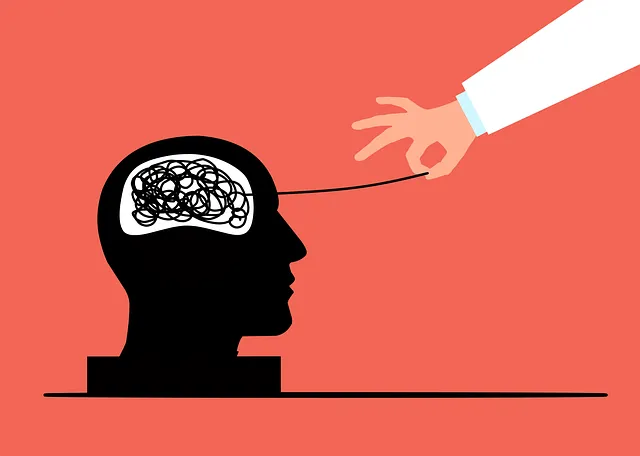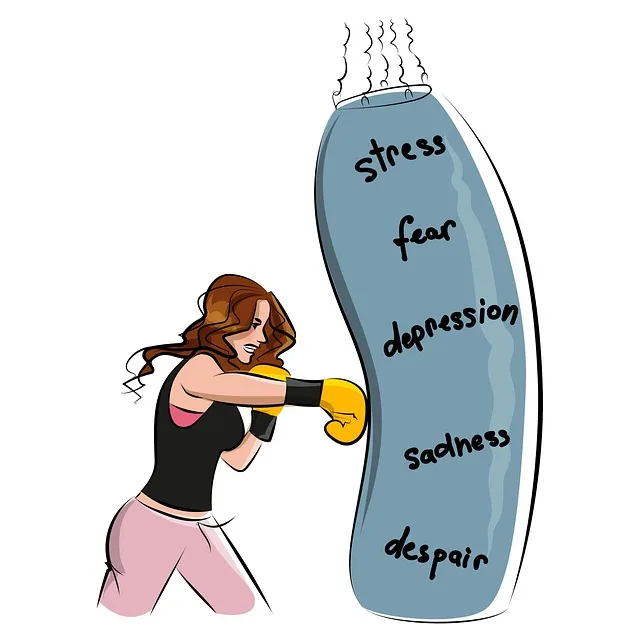Stress, a multifaceted response to internal and external stimuli, impacts mental and physical well-being, with prolonged exposure increasing vulnerability to mental health disorders. Kaiser Permanente's behavioral health services stand out for their comprehensive support, fostering resilience and preventing burnout through accessible resources, stress management strategies, crisis intervention, and coping skill development. Effective stress management techniques include mindfulness, exercise, and cognitive reframing, promoting work-life balance and enhancing the well-being of healthcare professionals. Integrating relaxation practices into daily routines reduces anxiety significantly, and cultural sensitivity in mental healthcare tailors these methods for enhanced therapeutic effects. Kaiser Permanente's superior mental wellness coaching programs build lasting coping mechanisms, contributing to individual and community resilience.
Stress management is a vital skill in today’s fast-paced world, and learning effective techniques can be transformative. This article explores comprehensive stress management through a combination of evidence-based practices and insights from leading providers like Kaiser Permanente Behavioral Health Services. We delve into the causes and impacts of stress, offering superior strategies for short-term relief and long-term resilience. Discover how relaxation, mindfulness, and built-in coping mechanisms can revolutionize your well-being.
- Understanding Stress: Unveiling the Impact and Causes
- Kaiser Permanente Behavioral Health Services: A Comprehensive Review
- Effective Stress Management Techniques: A Deep Dive
- Integrating Relaxation and Mindfulness Practices for Daily Relief
- Building Resilience: Strategies for Long-Term Stress Mitigation
Understanding Stress: Unveiling the Impact and Causes

Stress is a multifaceted response to various internal and external stimuli that demand our attention and action. It can stem from numerous sources, ranging from everyday pressures like work deadlines and financial concerns to more profound issues such as trauma or chronic health conditions. Understanding the impact of stress is crucial, as it influences not just our mental well-being but also physical health. Prolonged exposure to stress may lead to increased risks for various mental health disorders, as reviewed by Kaiser Permanente behavioral health services.
The causes of stress are as diverse as its effects. For some individuals, work-life balance challenges or relationship issues can significantly contribute to stress levels. Others might experience heightened stress due to a recent life change or a chronic illness. Trauma Support Services and Risk Assessment for Mental Health Professionals emphasize the importance of identifying personal triggers and implementing effective coping strategies. Moreover, proper risk management planning for mental health professionals is essential to navigate these challenges, ensuring both their well-being and the quality of care they provide.
Kaiser Permanente Behavioral Health Services: A Comprehensive Review

Kaiser Permanente Behavioral Health Services stands out as a beacon of comprehensive mental health support, offering a wide array of services designed to address various aspects of employee well-being. Their approach is holistic, encompassing not just therapy and counseling but also burnout prevention strategies for healthcare providers, crisis intervention guidance, and the development of coping skills. These services are tailored to meet the unique needs of medical professionals, who often face intense pressure and high-stress environments.
Reviews consistently praise Kaiser Permanente’s behavioral health services as superior in their ability to foster resilience among healthcare workers. By providing accessible resources and strategies for managing stress, they play a vital role in promoting work-life balance and preventing burnout. Crisis intervention programs, for instance, offer immediate support during challenging situations, while coping skills development sessions empower professionals with tools to navigate stressful scenarios effectively.
Effective Stress Management Techniques: A Deep Dive

Effective stress management techniques are essential tools for navigating life’s challenges and maintaining mental wellness. According to Kaiser Permanente behavioral health services reviews, superior practices often involve a combination of mindfulness, exercise, and cognitive reframing. For instance, integrating regular physical activity into one’s routine not only improves overall health but also acts as a powerful stress reliever by releasing endorphins that boost mood and reduce tension.
Moreover, developing inner strength through practices like meditation, deep breathing exercises, or participating in the Mental Wellness Podcast Series Production can empower individuals to confront stressors with resilience. Risk Management Planning for Mental Health Professionals is another critical aspect; it ensures that those helping others manage their stress effectively also have robust coping mechanisms in place. By adopting these strategies, individuals can enhance their ability to handle pressure, fostering a more balanced and fulfilling life.
Integrating Relaxation and Mindfulness Practices for Daily Relief

Integrating relaxation and mindfulness practices into daily routines offers a powerful approach to stress management, as evidenced by Kaiser Permanente behavioral health services reviews. These techniques, such as deep breathing exercises and meditation, are simple yet highly effective in reducing anxiety and promoting mental wellness. By dedicating just a few minutes each day to these practices, individuals can experience significant improvements in their overall well-being.
Cultural sensitivity in mental healthcare practice plays a crucial role in the effectiveness of these methods. Tailoring relaxation and mindfulness techniques to respect and incorporate an individual’s cultural background can enhance their therapeutic benefits. Mental wellness coaching programs development and empathy building strategies are also integral components, enabling individuals to cultivate resilience and cope with life’s challenges more effectively.
Building Resilience: Strategies for Long-Term Stress Mitigation

Building resilience is a key strategy for long-term stress mitigation, and it’s an area where Kaiser Permanente behavioral health services truly shines, as reviewed by many satisfied clients. Their Superior approach to mental wellness coaching programs focuses on empowering individuals to develop inner strength and navigate life’s challenges with greater ease. Through tailored interventions, these programs help participants cultivate coping mechanisms that stand the test of time.
The development of resilience isn’t an overnight process; it involves consistent practice and a commitment to personal growth. Stress management workshops within the organization often incorporate techniques like mindfulness meditation, cognitive-behavioral therapy, and positive psychology to foster lasting change. By investing in these initiatives, Kaiser Permanente not only supports individual well-being but also contributes to a more resilient community, where people are better equipped to handle life’s stressors effectively.
In light of the above, it’s clear that stress management techniques are a vital tool for navigating today’s fast-paced world. By understanding the impact and causes of stress, we can effectively utilize resources like Kaiser Permanente Behavioral Health Services, renowned for its comprehensive reviews and superior care. Integrating relaxation, mindfulness, and resilience-building strategies into our daily lives allows us to mitigate long-term stress and foster overall well-being. With consistent practice, these techniques can revolutionize our approach to stress management, ensuring a more balanced and fulfilling life.






